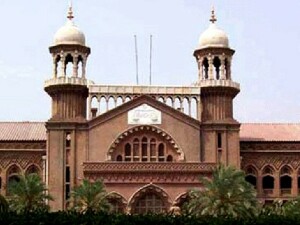Ethiopia, Africa's second-most populous country, readied Saturday for the first general election since the death of strongman Meles Zenawi, whose successor Hailemariam Desalegn is all but certain to stay in office. Over 36.8 million Ethiopians have registered for Sunday's polls, but on Saturday life in capital Addis Ababa went on as normal. Apart from a few military vehicles at occasional crossroads, there was little sign that key elections were to be held the next day.
Analysts say the election falls far short of open competition. "Electoral defeat is not on the cards for Ethiopia's ruling party, but it is vital for the country's development that it engages more effectively with dissenting voices," said Jason Mosley, from Britain's Chatham House think tank. Posters of the ruling Ethiopian People's Revolutionary Democratic Front (EPRDF) dominate the capital Addis Ababa. The EPRDF has been in power for over two decades and is confident of a win, but insists the result will be decided on its economic record alone. Ethiopia is now one of Africa's top performing economies and a magnet for foreign investment. Rights groups - which routinely accuse Ethiopia of clamping down on opposition supporters and journalists, and of using anti-terrorism laws to silence dissent and jail critics - said Saturday the polls would not be free or fair due to a lack of freedom of speech.
Addis Ababa dismisses such criticism, with government spokesman Redwan Hussein telling AFP that voters would choose their representatives based on performance. "If they want to give us another chance they will vote for us," he said. "If they have a grudge, they will not give their vote to EPRDF." Polls open at 6:00 am (0300 GMT) on Sunday and close at 6:00 pm (1500 GMT), with initial results expected within two to five days, and final official tallies on June 22.
Ethiopia, whose 1984 famine triggered a major global fundraising effort, has experienced annual economic growth of more than 10 percent over the last five years, according to the World Bank. Former Marxist rebel-turned-leader Meles, who died in 2012, was succeeded by Prime Minister Hailemariam, who has said he is committed to opening up the country's political system to allow more space for opposition parties. The opposition accuses the government of using authoritarian tactics to ensure a poll victory.
"The political space has been closed," said Yilekal Getinet, leader of Semayawi - the "Blue Party" in Ethiopia's Amharic language, and one of the nation's main opposition parties. Such complaints are dismissed as "baseless" by the National Election Board of Ethiopia (NEBE). "The environment created for political parties this year is exceptional," NEBE president Merga Bekana said. The Election Commission will deploy some 40,000 observers at 45,795 polling stations. The only foreign election observers are from the African Union, which has sent a team of 59 officials. The European Union and the US-based Carter Center, which monitored 2005 and 2010 elections, were not invited back this time. "While symbolically significant... the polls are more of a logistical hurdle for the ruling party than a competitive, democratic exercise," Mosley said.
BR100
12,000
Increased By
69.2 (0.58%)
BR30
35,548
Decreased By
-112 (-0.31%)
KSE100
114,256
Increased By
1049.3 (0.93%)
KSE30
35,870
Increased By
304.3 (0.86%)



















Comments
Comments are closed.